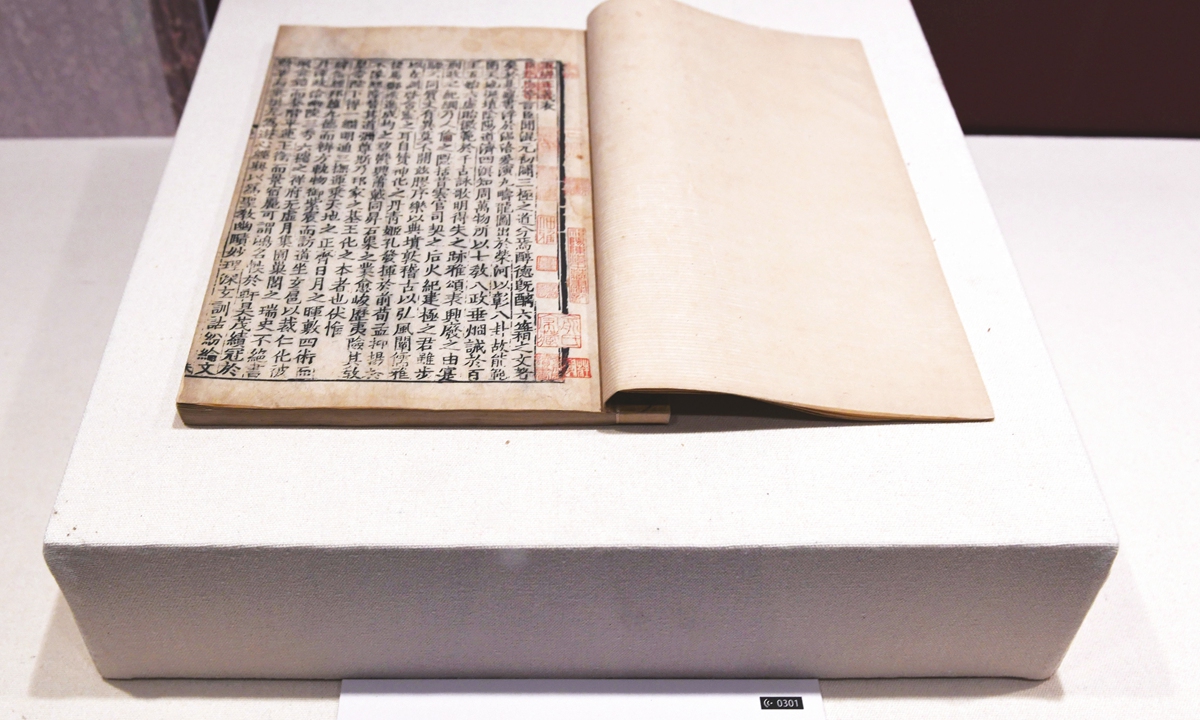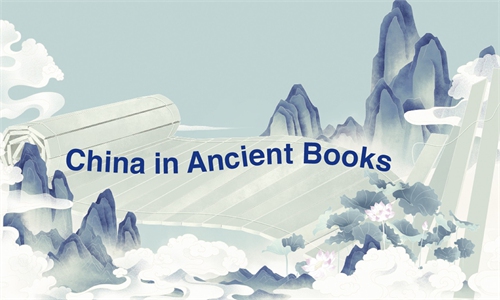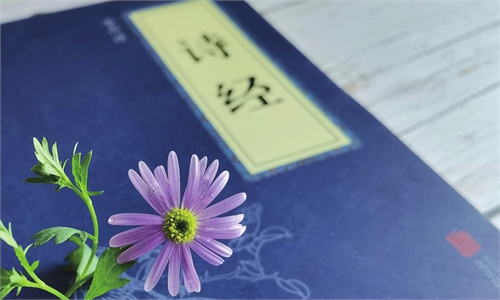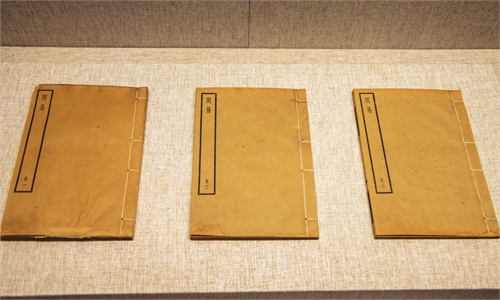ARTS / CULTURE & LEISURE
China in Ancient Books

A copy of The Book of Changes at the National Library of China in Beijing Photo: IC
'The Book of Changes'(II): Highest achievement in the ancient Chinese philosophyZhouyi, or The Book of Changes, was never just a divination book like many people think. In this respect, Confucius accomplished a great deal. He saw more of the causes of an augury than its results, and combined the results with the philosophies of life, which could be mutually corroborating. Based on Zhouyi, Confucius provided many profound principles about moral ethnics, world views and outlooks on life. It means he sublimed the work to the highest level of Chinese philosophy in the era prior to the Qin Dynasty (221BC-206BC). Furthermore, Confucius used elegant, concise and easily understood language in his commentaries on Zhouyi, which was later enshrined as the first of the six Confucian classics.
In the book, Confucius left many maxims, such as "As Heaven changes vigorously, a man of noble character should make unremitting efforts to strive ahead; as the Earth is broad and solid, the man of noble character should embrace all laws in nature; A wise ruler should advance with the times, and he should also learn what ordinary people think in order to meet their needs."
During the Han Dynasty (202BC-220AD), Zhouyi won favor among the emperors, who turned it from a divination book into a philosophical canon for governance and self-cultivation. It was also called the "source of truth."
During the Song Dynasty (960-1279), philosophers such as Shao Yong, Zhang Zai, Zhu Xi, Chen Hao and Zhou Dunyi, wrote their own commentaries on Zhouyi. They created a cosmic structural scheme, put forward a simple and systematic Tai Ji Diagram combining Confucius' commentaries and Taoist theories, and proposed a theory that the core of Zhouyi was about the unity and opposites of internal contradictions, which was considered the universal law of the development of all things.
The study of Zhouyi further improved during the Ming (1368-1644) and Qing (1644-1911) dynasties with the proposition that the general principles existed in specific things, not vice versa; and the two contradictory sides complemented and transformed each other.
Over several thousand years of dissemination, Zhouyi was no longer simply a book, but a culture that has integrated itself into Chinese people's lives. It marks the crystallization of ancient people's wisdom, and can serve as the theoretical source of the traditional Chinese culture.
Global Times



